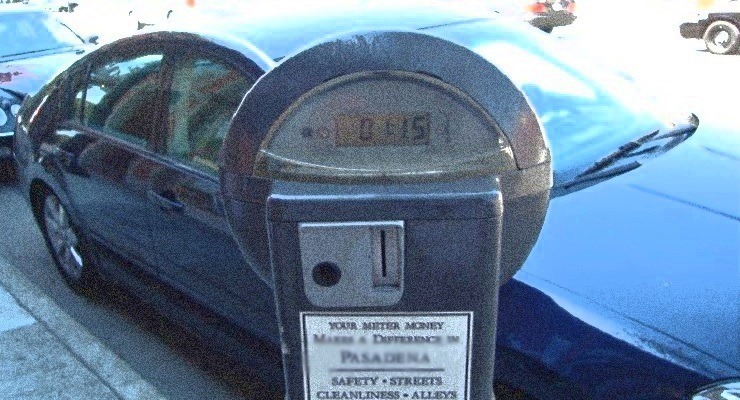The Pasadena Chamber of Commerce is using misleading scare tactics in its efforts to oppose a minimum wage plan in the city. At a recent City Council hearing, the Chamber warned that people would lose their health care benefits and other government safety net supports if the city adopted a plan to gradually increase the minimum wage to $15 hour by 2020. In the vast majority of cases, this simply isn’t true.
Across the country, millions of workers earn too little money to get by. Many working families are only able to keep their heads above water – to pay the rent and buy groceries – with assistance from federal and state income support programs, like food stamps and Medicaid. That vast numbers of workers need public benefits despite working full-time is a testament to the importance of raising the minimum wage. No one should work full-time yet still live in poverty.
The Pasadena Chamber pretends to care about the plight of working poor families by claiming that workers will become ineligible for the benefits they rely on if their wages increase, making them worse off. This phenomenon is sometimes referred to as a “benefits cliff.” But just like so many other arguments against raising the wage, this one loses its steam when we know the facts.
People across the political spectrum agree that public assistance programs should promote work and self-sufficiency. They shouldn’t create a disincentive to work by making it costly to choose employment over benefits.
Unfortunately, at a City Council hearing on the Pasadena minimum wage last month, speakers spread misinformation that ignores the reality of public assistance program rules. In fact, many programs slowly phase out benefits as income rises, ensuring that a raise (or working more hours) really does increase overall income.
One speaker claimed that a $15 minimum wage would cause some low-income workers to lose their Medicaid coverage – the program that provides low- or no-cost health insurance to low-income families – and leave them without affordable health insurance coverage. However, under the Affordable Care Act or “Obamacare,” families whose incomes exceed the Medicaid eligibility threshold can purchase subsidized health coverage through the Advance Premium Tax Credit program. These tax credits offer sliding scale coverage for people earning up to $80,360 for a family of three (based on earning up to four times the Federal Poverty Level, which is $20,090 for a household of three)– far more than the $31,200 a worker earning $15 per hour would make annually, based on a 40-hour work week. Ultimately, a minimum wage increase is good for workers’ health insurance access – and their health.
In the past it was true that sometimes a modest increase in earnings could result in a loss of benefits under CalFresh (also known as the Supplemental Nutrition Assistance Program (SNAP) or “food stamps”) that was greater than the increase in earnings. However, California has recently taken steps to remove this “benefit cliff” by California increasing the gross income eligibility level for CalFresh to 2 times the federal poverty level. As a result, a family with one working parent and two dependents can potentially qualify for food stamps in California with a gross income under $40,180 – SNAP benefits gradually phase out as net income increases, always leaving families with more money in their pockets after a raise.
Important tax credit programs like the Earned Income Tax Credit (EITC) and the Child Tax Credit (CTC) are also structured to ensure that low-income workers who get a raise end up better off. They phase out slowly, and in some cases part-time workers whose incomes increase from very low levels will see an increase in their tax credits that more than offsets the loss of other benefits.
Workers receiving child care assistance have sometimes faced benefits cliffs. In California, families qualify for assistance when their incomes are below 210 percent of federal poverty (or $42,216 annually). The recently reauthorized federal Child Care and Development Block Grant (CCBDG) program allows families to continue receiving assistance until their income reaches the maximum federal eligibility level of 85 percent of State Median Income—which is more than $55,200 in California. The new law also requires states to gradually ease families off of subsidies when their incomes make them ineligible for assistance.
While our state and federal public benefits programs aren’t perfect, most have provisions to ensure that lower-wage workers who increase their incomes can continue to receive support, instead of abruptly losing coverage. The bottom line is that a higher minimum wage will make low-income working families better off, regardless of whether they currently rely on public assistance to make ends meet. The facts bear this out.
Pasadena’s low-wage workers deserve a raise. The Chamber’s misleading arguments are designed to frighten the public and lawmakers into opposing an increase in the minimum wage. With these myths dispelled, and so much evidence to support its benefits, the city should move ahead with the $15 minimum wage proposal immediately.
Elizabeth Ben-Ishai, a Pasadena resident, is senior policy analyst at the Center for Law and Social Policy (CLASP), a national anti-poverty organization that develops and advocates for federal, state and local policies to strengthen families and create pathways to education and work.














 0 comments
0 comments



